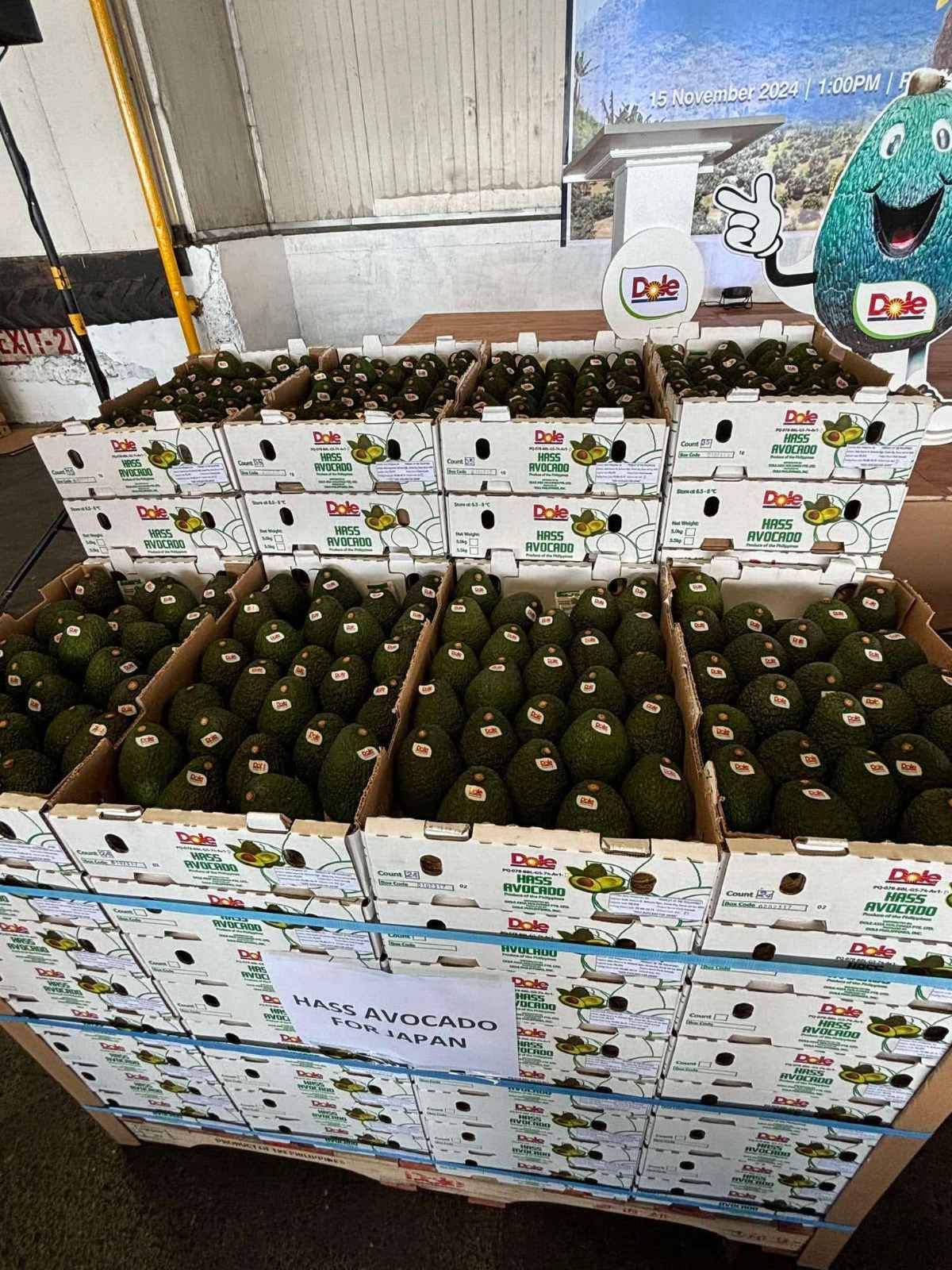PH Hass Avocados now exported to Japan; 1st shipment sent from Mindanao—DA
By Jel Santos

The Philippines has successfully entered Japan’s high-value market for Hass avocados, marking a major milestone in the country’s agricultural export growth, the Department of Agriculture (DA) announced on Sunday, Nov. 17.
According to the agency, the first shipment of Philippine-grown Hass avocados was recently sent from Mindanao.
“This is a testament to the Philippines’ dedication to expanding its agricultural exports and the high quality of our farm produce,” DA Secretary Francisco Tiu Laurel Jr. said in a statement.
He expressed optimism that this achievement will open doors to other international markets for locally-grown avocados.
The Hass variety, known for its small size and purplish-black skin when ripe, is particularly favored in Japan.
Experts predict the global Hass avocado market to reach $18 billion by 2025, providing significant growth opportunities for Philippine exporters.
The DA said the export breakthrough was a result of the collaborative efforts of the Bureau of Plant Industry (BPI), the Office of the Agriculture Attaché in Tokyo, and Dole Stanfilco.
BPI Director Glenn Panganiban said that negotiations for access began in 2011.
“Securing access to Japan’s highly competitive market for Hass avocados is a significant step forward in our trade relations with Japan,” he said.
In 2023, the Philippines exported $1.1 billion worth of agricultural products to Japan, resulting in a $990 million trade surplus.
Panganiban said that the inclusion of Hass avocados, alongside established exports like bananas and pineapples, fortifies the Philippines’ position as a reliable supplier of high-quality fruits to Japan’s discerning consumers.
Japan imported $160 million worth of Hass avocados (61,000 metric tons) in 2023, with major suppliers including Mexico, Peru, and the United States.
Per Agriculture Attaché Aleli Maghirang, the Philippines is the first Asian country granted export access for Hass avocados to Japanz
“This provides local producers with an excellent opportunity to capitalize on Japan’s growing demand for fresh fruits,” she said.